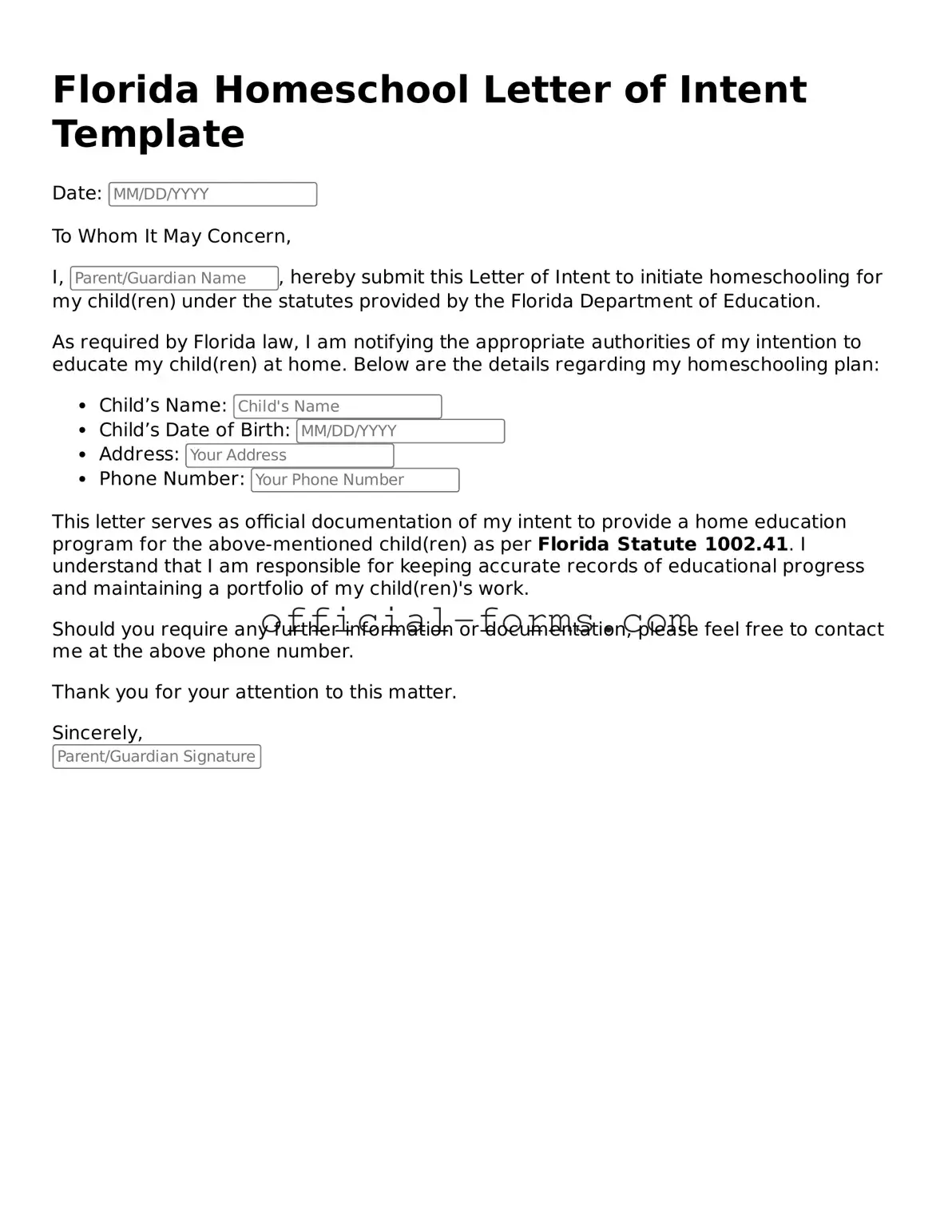Official Florida Homeschool Letter of Intent Document
The Florida Homeschool Letter of Intent form is a crucial document that parents must submit to officially notify their local school district of their decision to homeschool their children. This form serves as a declaration of intent to provide an educational environment outside of traditional public or private schools. Understanding its importance and the process involved can empower families to take control of their children's education effectively.
Open My Homeschool Letter of Intent Now

Official Florida Homeschool Letter of Intent Document
Open My Homeschool Letter of Intent Now
Don’t leave your form incomplete
Finish Homeschool Letter of Intent online quickly from start to download.
Open My Homeschool Letter of Intent Now
or
➤ PDF
